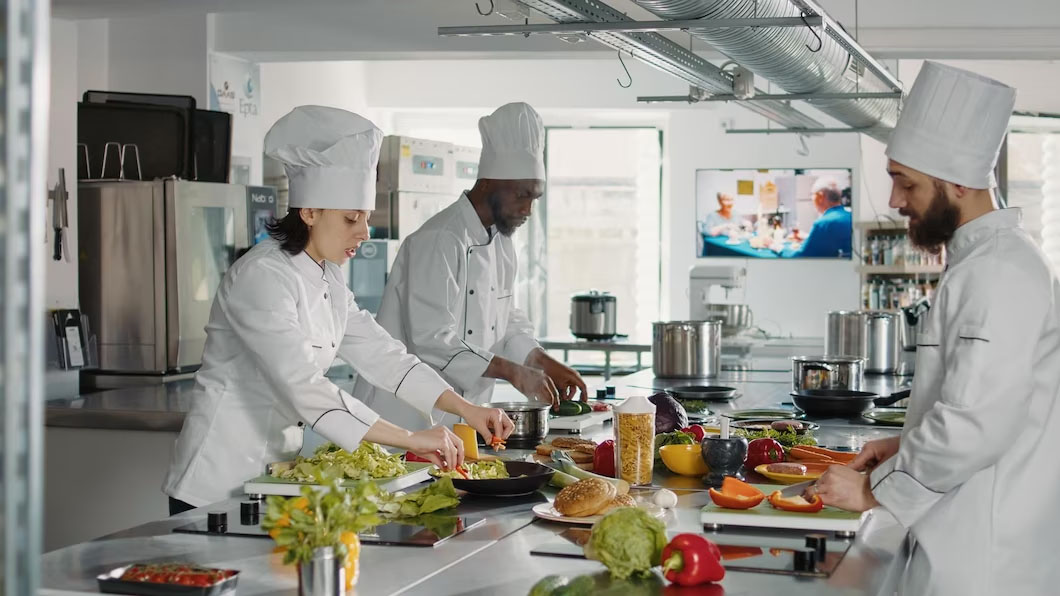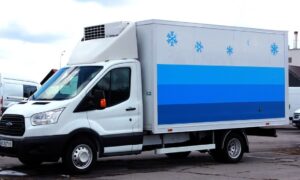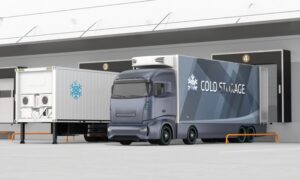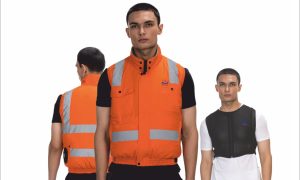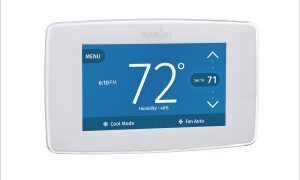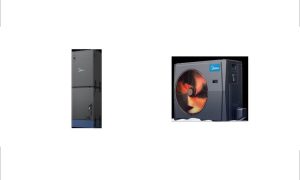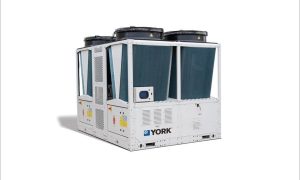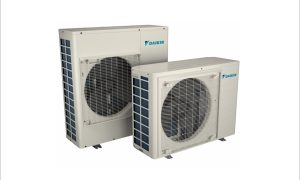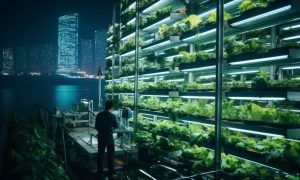A tech-driven cold chain is a significant growth catalyst for cloud kitchens that deal in temperature-sensitive products like dairy, meat, and fish and agriculture produce like fruits and vegetables and exotic plant-based produce.
Cloud kitchens have been a buzzword in the Indian food service industry and for good reason! Driven by rapid tech adoption and innovative service offerings, the India cloud kitchen market is all set to grow at approximately 15.5 to 17.5 percent CAGR during 2024-2028 and may achieve a market value of USD 2.5 billion by 2028. Even as cloud kitchens continue to boom even after the pandemic, its penetration in other Tier 1, tier 2 and tier 3 markets is still marred with several challenges, including the access to efficient cold storage and temperature-controlled transportation.
a nation, we incur food losses of $14 bn annually due to inefficiencies in the cold supply chain. The cloud kitchen segment also bears the brunt of these inefficiencies, both in procuring raw materials and delivering finished goods.
There are four major reasons why this happens:
• Inefficient last mile delivery infrastructure for shorter distances, caused due to a series of factors, including using non-refrigerated vehicles for shorter distances, lack of temperature-controlled infra for delivering smaller quantities of products to stores or to customers directly, lapses in maintaining optimum temperatures, and handling by untrained delivery agents. As a result, many cloud kitchens are forced to depend on ice boxes in non-refrigerated vehicles for delivering temperature-sensitive finished products such as ice creams, shakes, juices, sushi, etc., which considerably compromises the quality of the product.
• The absence of temperature-controlled Hyperlocal delivery services results in multiple orders being transported in one vehicle, forcing delivery agents/ workers to open and shut the vehicle multiple times for sorting and unloading at multiple stops. Maintaining separate temperatures for products inside one vehicle becomes impossible, resulting in quality loss. This disturbs the temperature consistency, and by the time the vehicle delivers to the last stop, the product quality is compromised, causing rejections and returns and, thus, revenue losses.
• Operational issues can be solved with effective tech adoption, like the lack of real-time tracking, tracing, and temperature monitoring during transit. This can help put processes in place for timely monitoring.
• The lack of cold storage facilities that allow storing smaller quantities of products and an untrained workforce to handle the daily distribution of such products create a gap that cannot be addressed by traditional means. While cold storages offer solutions for 1000+ tons of consignments, they seldom provide solutions to keep 5 or 50 tons of materials, which is usually what cloud kitchens or perishable food companies require.
What’s the result of these issues?
• The end consumer receives the compromised food quality, causing customer dissatisfaction and compounding customer retention challenges for cloud kitchens.
• Huge revenue loss due to wastage caused by rejected food. The time, the cost of raw materials used and the cost of transportation all become a liability.
• Unhappy customers also affect cloud kitchens’ ratings and reviews on food delivery apps – a major determinant of their success or failure.
• The last stores/kitchens to receive raw material delivery get sub-par quality products, causing rejections, returns and revenue losses.
Here is how we could fix this with technology.
Use IoT to eliminate inefficiencies and human error: IoT integration into cold supply chains helps logistics partners track and trace every step in the transportation process, minimizing human error, ensuring greater delivery accuracy, and driving significant cost-optimizing benefits on procurement. IoT also helps with more efficient route planning, a major hassle for cloud kitchens when scheduling hundreds of deliveries daily.
Leverage the power of AI and ML to improve the procurement process: AI and ML offer end-to-end visibility and facilitate predictive analysis for every cold chain function. Integrating them into your inventory control system helps keep track of stock at all times, assists in better decision-making for stock orders, and ensures that there is always just the right amount of stock at hand. Managers can also account for occurrences such as harsh weather conditions and find alternative procurement options to ensure that they don’t hamper the quality of the raw material or pay extra for procurement. Further, AI and ML-based smart sensors can also track vehicle maintenance records and predict potential malfunctions based on historical data, thereby eliminating delays.
Smart reefer vehicle fleet: Reefer Vehicles, Temperature controlled Hyperlocal delivery riders could be game changers for cloud kitchens. Reefer vehicles are a massive upgrade from the ice boxes used to transport cloud kitchen products today. Different cold chain products need to be transported at different temperatures. For instance, ice creams require a lower temperature than fresh juice. With reefer vehicles, products can be maintained at the required temperature throughout the journey from your kitchen to the customer, which is something you cannot do with ice boxes. When equipped with AI, ML, IoT devices, and blockchain-based smart contracts, reefer vehicles offer a near-fail-safe delivery option to deliver final orders to end consumers and procure quality raw materials.
A tech-driven cold chain is a significant growth catalyst for cloud kitchens that deal in temperature-sensitive products like dairy, meat, fish, and agricultural produce like fruits and vegetables, exotic plant-based produce that require temperature-controlled storage and transportation etc. Waste minimization directly impacts your profitability and allows you to scale your business at lower margins. A logistics partner with cold chain specialization powered by technology can help your business get to the next level quicker and easier. Ideally, stored and transported products create happy customers, translating into better online reviews and, thus, more new customers and revenue. Moving forward, cloud kitchens must compete with cold chain specialists to gain a distinct competitive advantage and own their market.
Expertise shared by Mr. Swarup Bose, Founder and CEO, Celcius Logistics
To know more visit: www. celcius.com
Cookie Consent
We use cookies to personalize your experience. By continuing to visit this website you agree to our Terms & Conditions, Privacy Policy and Cookie Policy.

